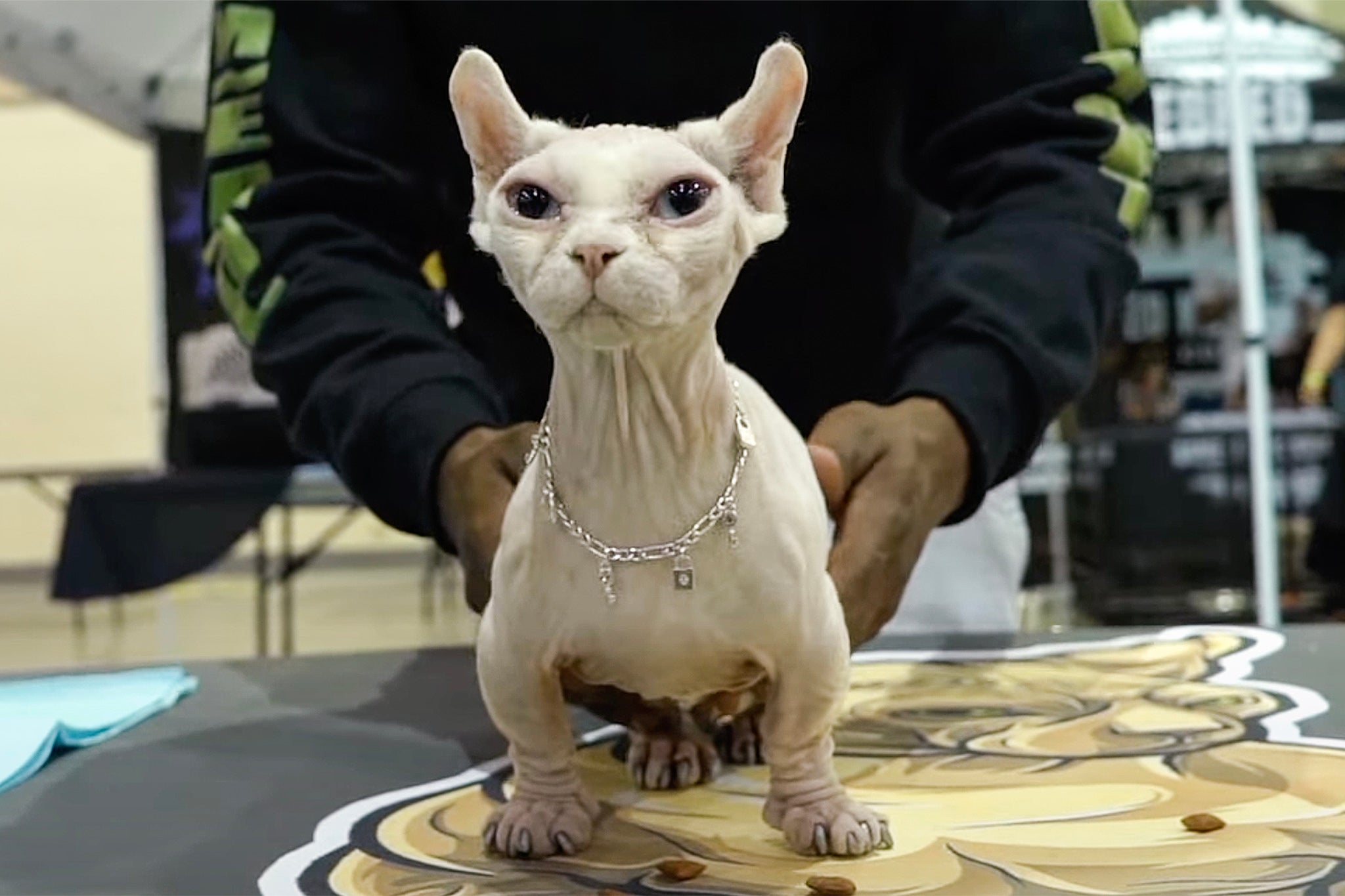
UK Experts Warn Against Purchasing 'XL Bully Cats' Due to Health Risks
Recently, a new hybrid cat breed, dubbed "XL Bully cats," has been causing concern among animal welfare experts in the UK. These cats are genetically engineered to resemble XL Bully dogs, blending the hairlessness gene from sphynx cats with the short-legged gene found in munchkin cats. While the breed may appeal to some due to its unique appearance, experts are urging people not to purchase these cats because of serious health complications.
The XL Bully cats are beginning to be sold in the UK, and social media is playing a significant role in promoting them. Despite their popularity, veterinarians and animal welfare organizations are sounding the alarm about the dangers of owning these cats. The breed is considered "mutant and experimental," with a significantly shorter life expectancy—on average, at least six years less than that of a regular cat.
Also Read:- Travis Hunter’s Aggravated Shoulder Injury Overshadows Colorado’s Victory Over Arizona
- Tottenham's Stunning Second-Half Comeback Seals 4-1 Victory Over West Ham
One of the primary concerns with XL Bully cats is their lack of whiskers, which severely impacts their communication and navigation skills. Cats rely on whiskers to sense their surroundings, so the absence of this key feature can lead to disorientation and stress. Furthermore, their short legs, while a desired trait for aesthetic reasons, are a genetic defect that often results in painful arthritis and mobility issues as they age.
The hairlessness of these cats also presents additional health risks. Without fur, they struggle to regulate body temperature and are more susceptible to respiratory infections, sunburn, and even skin cancer. The combination of these genetic traits makes XL Bully cats particularly vulnerable to various ailments, leading experts like Dr. Grace Carroll from Queen's University Belfast to urge potential pet owners to reconsider supporting breeders who prioritize looks over the animal's well-being.
Animal rights organizations, such as the NatureWatch Foundation, have expressed concern about the rising trend of extreme breeding practices. Initially seen in the dog world with breeds like XL Bully dogs, this trend has now crossed over to cats, driven by the desire for social media attention and profit.
Ultimately, the advice from professionals is clear: rather than buying into the hype of mutant breeds with extreme physical traits, consumers should prioritize ethical breeding practices that promote the health and happiness of the animals. Choosing breeds that allow cats to behave naturally—jumping, climbing, and basking in the sun—ensures their long-term well-being. As Dr. Carroll says, "We should let cats be cats."
Read More:


0 Comments